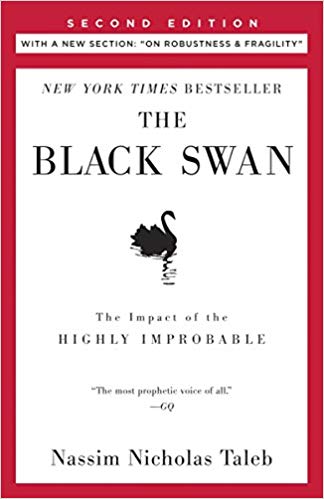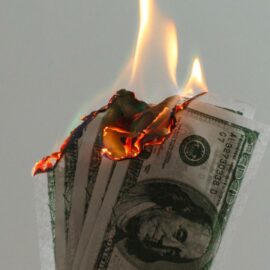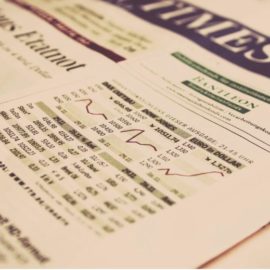

This article is an excerpt from the Shortform summary of "The Black Swan" by Nassim Taleb. Shortform has the world's best summaries of books you should be reading.
Like this article? Sign up for a free trial here .
What was Friedrich Hayek’s economic theory? Why did he spend so much of his career railing against socialism?
Economist Friedrich Hayek argued that a dynamical system like the economy was simply too complex for a single entity to master. This was in contrast to the prevailing rational choice theory.
We’ll cover the basic elements of Hayek’s libertarian economic theory and explore why uncertainty makes prediction impossible.
Hayek’s Economic Theory: Libertarianism
One of very few esteemed economists (he won a Nobel in 1974) to understand the futility of prediction, Friedrich Hayek spent much of his career railing against the main feature of socialism, central planning. In a classical socialist society, all economic decisions—allocation of resources, setting of prices, etc.—are made by a single entity.
Hayek attributed notions of central planning to misguided “experts” (nerds, in Taleb’s terminology) who applied the methods of the physical sciences to social matters. Hayek recognized a stark distinction between soft sciences like economics and hard sciences like physics. This distinction was part of Hayek’s economic theory.
Hayek’s skepticism regarding any entity’s ability to predict the functioning of the economy led him to advocate for an “a-Platonic” approach, one that is open-minded and proceeds from the bottom up rather than the top down. In Hayek’s economic theory, he argued that a libertarian system, wherein individuals are able to pursue their self-interest with a minimum of direction from above, is the best way to manage uncertainty. In a system like this, he believed, the system itself would react accordingly to any unexpected changes in, say, the food or credit supply.
Hayek’s anti-Platonifying approach to economics also puts his thought at odds with contemporary mainstream economists’.
For example, most economists today subscribe to some version of rational choice theory, which holds that individuals (or “agents”), when faced with an economic choice, will choose the option that maximizes their economic benefit. (A basic illustration: If an economic agent has a choice between an investment that returns $2 and one that returns $5, the agent will always choose the one that returns $5.) The assumption that agents will always act rationally when it comes to economic choices allows economists to create models and propose predictions for future economic behavior.
———End of Preview———

Like what you just read? Read the rest of the world's best summary of "Black Swan" at Shortform . Learn the book's critical concepts in 20 minutes or less .
Here's what you'll find in our full Black Swan summary :
- Why world-changing events are unpredictable, and how to deal with them
- Why you can't trust experts, especially the confident ones
- The best investment strategy to take advantage of black swants






yes, grifters have always been here
Adam Smith’s Wealth of Nations is in the public domain and can be downloaded from Project Gutenberg and searched. The printed book can cost you $15 and take a lot of effort to search. Has Smith’s “Invisible Hand” been used as a propaganda tool for decades since most people would never read WoN?
Smith used the word ‘invisible’ six times but only once as “invisible hand”. It is really curious that we hear about the ‘invisible hand’ so much.
Smith used the word ‘education’ EIGHTY TIMES. We are not told about that. Search for “and account” and you will find multiple instances of “read, write, and account”, not “read, write and arithmetic”. Double entry accounting was more than 300 years old when Smith wrote Wealth of Nations, but 50% of Brits were illiterate and public schools did not exist in 1776.
The United States could have made accounting/finance mandatory in the schools since Sputnik. Wouldn’t that have helped everyone best serve their own self interest? But we do not hear the people who propagandize us about the “invisible hand” advocating mandatory accounting because that might make their invisible rip-offs more difficult.
Adam Smith never used the word ‘depreciation’. He mentioned paper money being depreciated one time. Marx wrote about ‘depreciation’ a number of times in Das Kapital, sometimes regarding the depreciation of machines.
Consumers did not buy automobiles and air conditioners and televisions before 1885.
Marx died in 1883.
But it’s OK! Our brilliant economists do not talk about the depreciation of under engineered consumer trash today either. Every time you buy a replacement the purchase is added to GDP. What about NDP? Oh sorry, you never heard an economist explain NDP. That’s OK too, they only depreciate the Capital Goods and ignore the depreciation of consumer junk anyway.
Wealth of Nations has probably been in the public domain for a very long time but cheap computing did not make it available in Project Gutenberg until 3/17/2001. Milton Friedman died in 2006. Was Friedman giving us the straight dope on economics or treating us like dopes for decades?